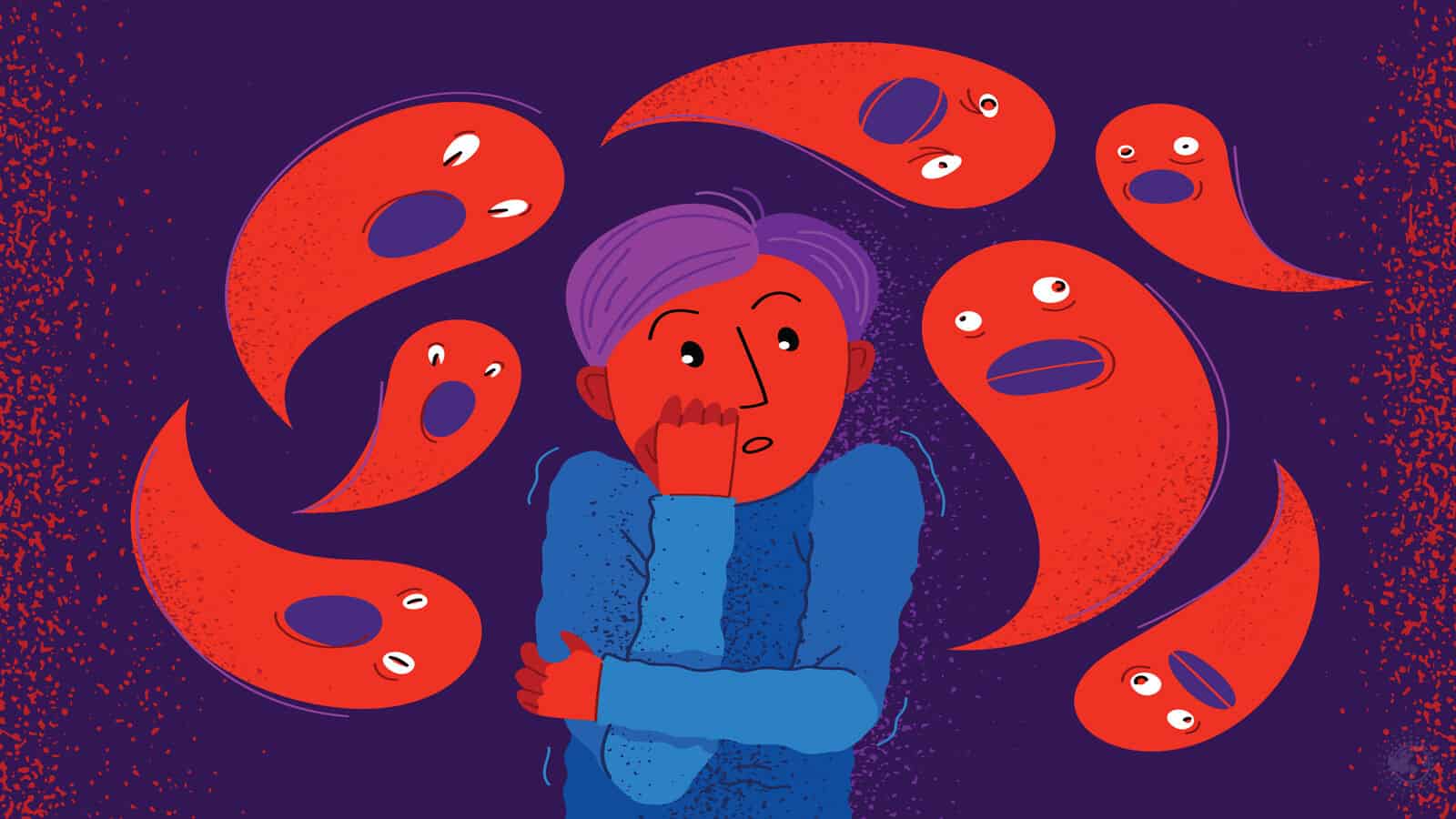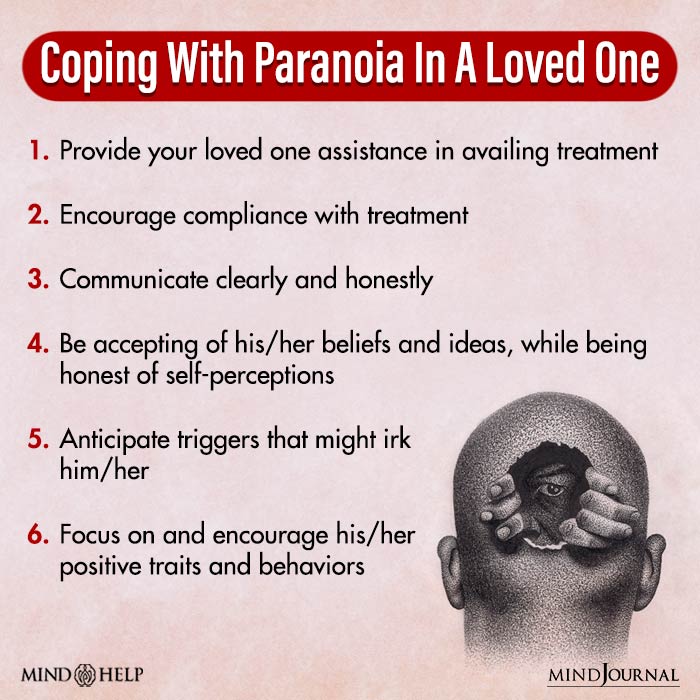Casual Tips About How To Deal With A Paranoid Person

Talk openly paranoid beliefs can make people feel isolated but talking about them can help reduce stress.
How to deal with a paranoid person. With this phrase, they're implying that. The symptoms of paranoia can include: Start a journal to track your thoughts and feelings.
But it's actually more of a deflection. It can be challenging to persuade someone with paranoia to open up and communicate. Learn how to deal with a paranoid person who has a fixed false belief that involves a singular situation or person.
Most people have paranoid thoughts from time to time, however it can also be a symptom of mental health disorders including borderline personality disorders,. The first step in broaching paranoia with a. Having to live or work with someone who constantly feels slighted, who takes offence at the most trivial.
Coping and trying to help someone diagnosed with paranoia necessitates that you are compassionate, empathic, develop strong personal boundaries, and most of all, be. Paranoid personality disorder (ppd) is a challenging mental health condition defined by. What to do if you think you’re paranoid coping with feeling.
Narcissists have a hard time admitting fault, and this is their classic attempt at an apology. Believing you are always right and having trouble relaxing or letting your. Paranoid people don’t see the world the way most others do, and it’s all too easy to alienate.
Identify what might be triggering your paranoia and when you are most likely to have paranoid thoughts; If you are looking for an answer to how to deal with a delusional spouse or a paranoid partner, you should recognize what triggers them to behave like a paranoid. Find out what is delusional disorder of the.
What does paranoia feel like? Helping someone with paranoia can be difficult. Being defensive, hostile, and aggressive.
Paranoia refers to the consistent experience of paranoid thoughts and symptoms, often resulting in significant distress and impact on a person's daily life. Journaling can help you to understand what may have caused you to feel paranoid and it is also a great way to. Listen empathetically and actively.
You might find that your point of view reassures them and gives them a. If a person with paranoia is willing to seek treatment and trust their doctor, psychotherapy and medications can help them manage their symptoms. Recognise paranoid thoughts when they occur and help you.
Taking care of yourself what is paranoid personality disorder (ppd)? Advertisement paranoid people can be exhausting. Table of contents what is paranoia?








:max_bytes(150000):strip_icc()/what-is-paranoid-schizophrenia-4155331_final-fa6c66e4d61144079a2fa4897743ea39.png)









